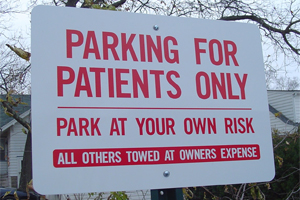The simple answer to the question posed in this article’s title is “Terrible.” Need a simple example? An estimated $300 billion is wasted every year in the US because patients don’t follow the treatment regimens that have been prescribed for them. Between 20% and 30% of first-time prescriptions are never filled, and over 50% of patients admit to not remembering or not adhering to their doctors’ instructions for how to take the prescriptions they did have filled.
So what causes non-compliance with doctors’ medical advice?
Obviously, part of the problem is poor communication on the part of both doctors and patients. It’s not unusual for healthcare providers to provide only a brief explanation of the treatments they prescribe. And for their part, many patients don’t really understand their doctors’ instructions and are uncomfortable asking questions.
Another part of the problem is inherent in the language used to describe the “old-school” relationship that once existed between doctors and their patients. “Following orders” is a military term, but most patients in this day and age are not in the military, and they don’t believe that their doctors have the right to give them orders. More often, patients regard a doctor’s advice as an expert’s suggestion, which they follow for as long as they’re experiencing symptoms that concern them. This can be especially true (and dangerous) when a patient has a chronic health condition that must be actively managed and that may require meaningful lifestyle changes related to diet or exercise.
Improved communication leads to improved compliance.
The more clearly doctors communicate the reasons for adhering to a treatment regimen, the more likely patients are to actually follow their advice. Doctors should take note of patients who seem depressed, for example, because statistically they will be the most likely to ignore or forget treatment advice.
But there are also things patients can and should be doing to improve their own healthcare outcomes. If you don’t understand your condition, don’t believe your treatment is working or are experiencing side effects, always tell your doctor. It’s never a good idea to simply discontinue treatment without having that conversation. Remember—you are ultimately responsible for your own healthcare. Whether you’d like a second (or third) opinion about your diagnosis or are interested in alternative treatment options, it’s important for you to communicate candidly!
As chiropractic physicians, we understand just how important good communication is in building a productive relationship with our patients. We want to be your partners in good health, and that means listening carefully and answering questions as directly and completely as possible!

